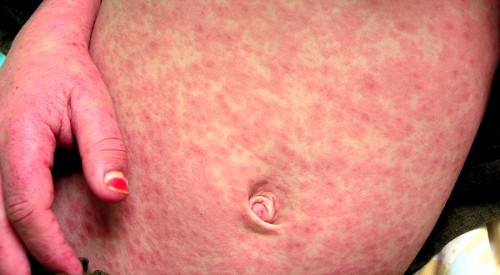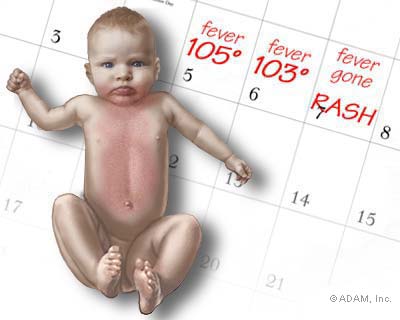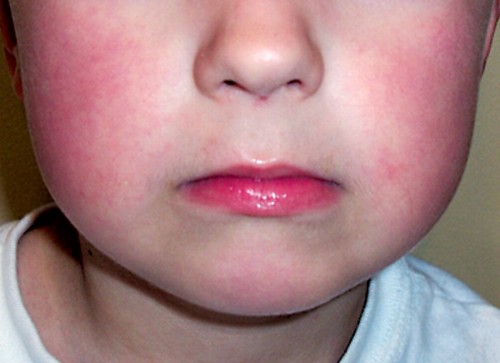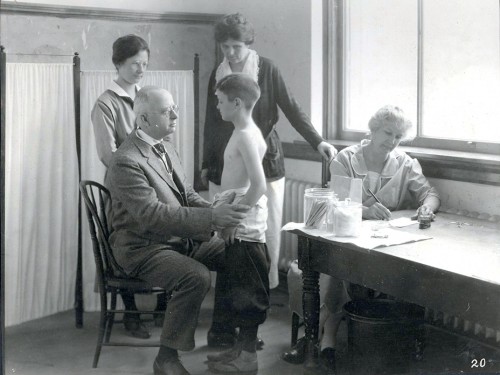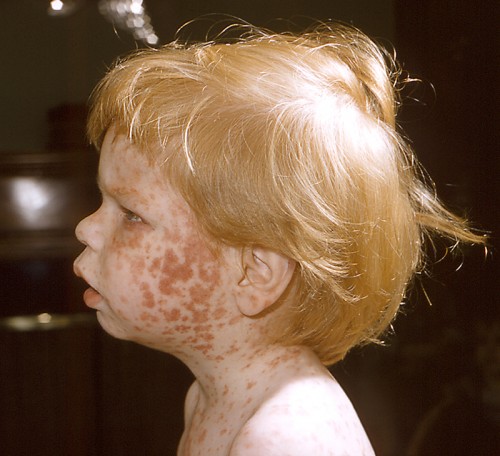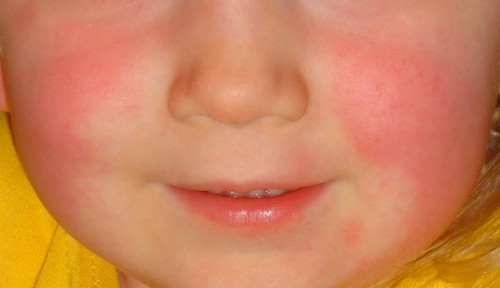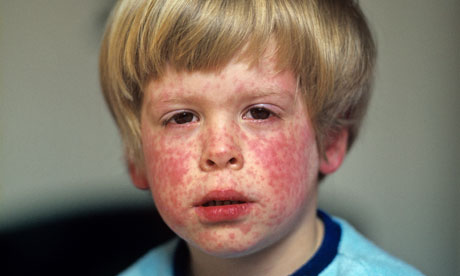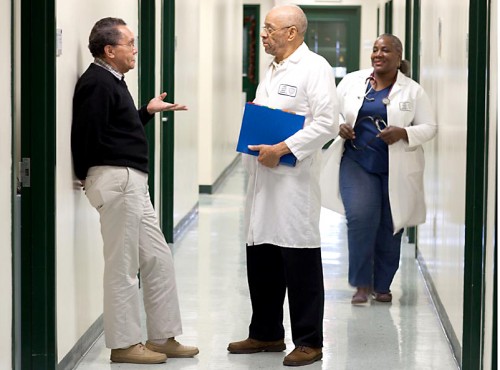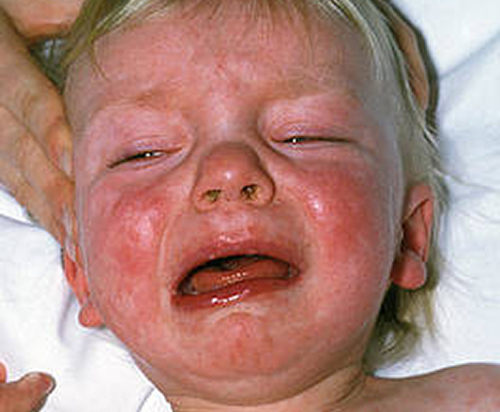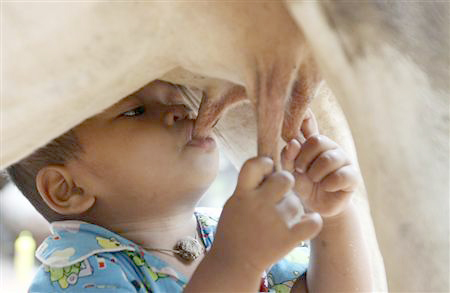Last weeks issue [Apr 25, 2014] of the Morbidity and Mortality Weekly Report (MMWR), published by the Center for Disease Control (CDC) was quite disheartening in that it reported a new surge of Measles cases – a disease which was once on the razor’s edge brink of eradication.
(more…)
Parenting advice, it comes from everywhere. If you listened to everyone and tried to follow everything you could well be institutionalized within the week.
Relatives are hard to ignore – but may be misinformed or out of date; so-called “free” samples aren’t really free if they come with self-serving advice; and, (more…)
Once you’ve got that bundle of joy in your arms, the next thing you may notice is the nearly overwhelming plethora of people who, knowingly or not, want to give you parenting advice about how you should care for it.
Of course, you expect advice and comment from pretty much everyone related to your addition; but advice probably will seem to come out of everywhere! And, if the internet is to be believed, you’ve most likely already screwed this kid up for good… UNLESS you send in $100 for their elixir or salve or book or blanket or crib or… or, or, or!
Honestly, there are some advice you can respectively listen to but then discard. I’ve written about several… but it took several posts to do it.
4 Posts in "Parenting Advice" Series
- Parenting Adivce to Ignore: Intro/Index – 8 May 2014
There is parenting advice and there is parenting advice. New parents, especially first-time parents, find that there are more than enough "experts" willing to offer advice about how you "should" do this and that raising your children. Especially you "generation Z" parents, who routinely trust internet more than people, should be pretty circumspect about who you listen to. Here are some examples of advice, that you may want to take with more than a grain of salt.
- Part 1 - Internet - Crying – 10 May 2014
Parenting advice, it comes from everywhere. If you listened to everyone and tried to follow everything you could well be institutionalized within the week. Pretty much EVERYTHING on the internet comes with an "agenda" which is RARELY (Ok, pretty much never) totally in your best interest. Are you safe to ignore it?
- Part 2 - Babysitter - Saying "no" – 22 May 2014
If you thought that you got a lot of parenting advice from people BEFORE the baby was born, just wait and see how many "well wishers" make contact with you after the little one arrives. This part TWO covers a bit more of advice you can ignore.
- Part 3 - Soft spot - crying – 3 Jun 2014
Parenting advice – something that we all probably need at one time or another; but, something that is awfully easy to get tired of. Here is some more "stuff not to stress about."
If you want more information about parenting advice, I’ve written several posts you can use the search box to find on this site; AND, there is a whole series of guest posts by Dr. Greg Barrett.
This post will finish our nostalgic wanderings through the “Numbered Diseases of childhood,” which we’ve been undertaking for several weeks. We are finally at SIXTH disease.
(more…)
Remember a couple-three weeks ago, when we started this little vintage trek through “the Numbered Diseases of childhood”, I sort of poked fun at the new-fangled-kid doc who sat in the back row and thought that a “pox” was a “rash”?
(more…)
We’ll continue our chats about “the Numbered Diseases of childhood” by discussing today FOURTH Disease and the unique circumstances about this number.
You remember from our previous discussions that the physicians in 1905 tried to streamline all the names of the rash-causing diseases by giving them numbers, one through six – oh, for the days!
(more…)
This is the fourth of our chats about “the Numbered Diseases of childhood” proposed in 1905 to list all the (then known) diseases which caused rashes and were killing off a sizeable portion of the population each year. Today we’re on ‘ol “Number Three” – Rubella!
(more…)
Frankly, the “Numbered Diseases” were just a touch before my time; but, that only means that none of the actual textbooks I used still called them by that name NOT that I haven’t cared for patients with that disease – because I have… lots of ’em!
(more…)
In 1905 pediatricians made a valiant attempt to simplify the medical nomenclature by giving the then known six diseases which caused rashes numbers instead of cumbersome, and sometimes embarrassing names. We spoke about the Numbered Diseases of Childhood in a previous article.
(more…)
About the last time I can see that anyone in the field of medicine attempted to make things a bit easier on ourselves was in 1905 when pediatricians tried to describe the six then known diseases which cause rashes by giving them numbers.
After all, unlike today, back then physicians weren’t so much the type of people who were (more…)
It was a much, much less complicated world back “then.” Back then nearly EVERY grandparent had seen and knew about rashes. None of them were a good sign.
There was no “real” treatment as we know it today and even less understanding about causes OR prevention. What they did know was that babies died of them… routinely!
There was, however, enough experience with them that they knew at least six different syndromes of illness associated with rash types, clinical course, and sequelae. Here are the six… they were given numbers instead of names.
8 Posts in "Numbered Diseases" Series
- Childhood Rashes and Numbered Diseases: Intro/Index – 1 Mar 2014
The BIG worry parents had back when I was a kid was: rashes, and the problems they caused. Almost nothing was known about the cause, or treatment; BUT, none of them were a good sign, and way too often meant either death or lifelong disability! A simpler time, the six known diseases which caused rashes were given numbers—which "mature" doctors still sometimes use in "secret code" against those GEN-Z "kids."
- Part 1 - Numbered diseases of childhood – 2 Mar 2014
In this somewhat light-hearted visit to yester-year we examine the medical situation of about a hundred years ago and discover the BIG worry parents had: rashes, and the problems they caused. A simpler time, the six known diseases which caused rashes were given numbers—which "mature" doctors still sometimes use in "secret code" against those GEN-Z "kids."
- Part 2 - Measles - First Disease – 10 Mar 2014
First Disease: 14-day measles, "hard" measles, Rubeola. Misery with a rash. The first of the numbered diseases.
- Part 3 - Scarlet fever - Second Disease – 18 Mar 2014
Second disease: Scarlet Fever, Strep, Scarlatina. A wide range of diseases, but can also cause Rheumatic Fever heart disease.
- Part 4 - Rubella- Third Disease – 26 Mar 2014
Third Disease: Rubella, “german measles,” “three-day measles” or “little measles” – there's nothing "little" about it! It's teratogenic (likes to deform babies). Good thing we (now) have way to prevent it, the safe and effective measles immunization.
- Part 5 - Filatov-Dukes disease - Fourth Disease – 3 Apr 2014
Fourth Disease: Filatov-Dukes disease. We know the name, but we lost the disease. This article explains the drama and how the whole practice of medicine can loose a disease.
- Part 6 - Erythema Infectiosum - Fifth Disease – 15 Apr 2014
Fifth Disease: Erythema Infectiosum (no it wasn't invented by dr. fifth), "slapped cheek," Parvovirus B19.
- Part 7 - Roseola - Sixth Disease – 27 Apr 2014
Sixth Disease: Roseola, "Rose rash," "Reddish Disease," "3-day-fever," "Sudden Rash," "Baby Rash," "Baby Measles," "Wind Measles," "False Measles," "Measles' Brother" - all the same thing.
What do you think? If you’d like to understand more, I’ve written several posts on all the new discoveries about how to prevent these rashes: vaccination series.
Pediatricians, as a general rule, are a lot more “laid back” and a lot less “type A” than other types of physicians – surgeons and neurologists come to mind. We pretty much need to be, or go crazy.
(more…)
:

